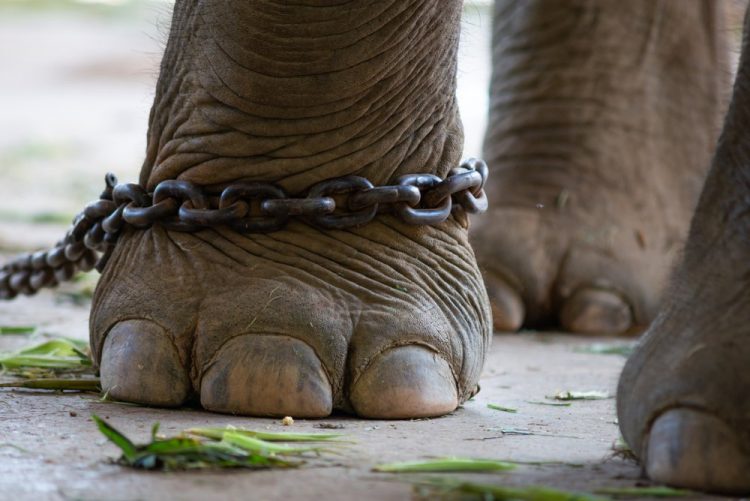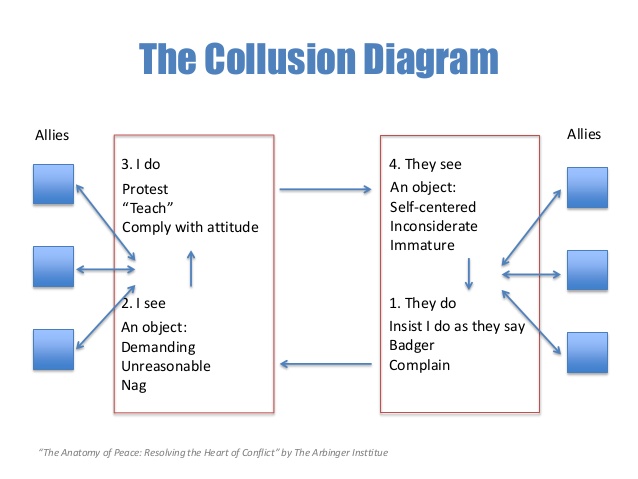
When a thought hits me I am compelled to dissect it. I love when my friends share their thoughts and insights, it opens up my mind to ponder on a deeper level. My friend wrote, "If we're not enablers, it's easier to walk away from narcissists and abuse." Thank you, Kristen!
I found this photo to offer a visual understanding of sorts that we do things unknowingly and out of habit; without awareness, negative behavior remains invisible. My title of the invisible elephant in a relationship speaks of either a healthy one or a broken one. What I know from my life experience is that a healthy relationship IS a process, but so is a broken one. The choice is yours. I have come to believe a good relationship is when two people choose the importance of figuring out how to be emotionally healthy first aka ownership of self. This can be done together. Meaning, the relationship doesn't have to be put on hold until one or the other party has been deemed enlightened. It's a beautiful gift you give a relationship when it shows up as acceptance, love, and the space to evolve how it's designed to evolve.
I've used this blog as a therapy of sorts to sift through and understand my thinking process ~ who knows, maybe one of you reading this blog analyses like me. First, a word usually stimulates my brain so I go to the word and process the definition. Second, I liken it to what I know as truth. How that shows up for me is much like an algebra equation. Silly as that sounds but what I like about algebra is you take an equation like 2+5=7, you can reverse it to receive the same answer like 7-5=2 or 7-2=5. Or 2x5=10 to 10/5=2 or 10/2=5 .... either way you process it, it remains constant. That is how I view consistency as truth.
Another example would be taking the number 6 - when you look at all angles you get a number 9 or 6, both are correct. What determines the outcome is the same, all are looking at a number. A 'number' in this case is the truth, the 9 or 6 is a perspective of that truth.
Using this example with numbers and seeing the perspective side, some may believe that of being an enabler and/or be co-dependent is a good thing and feel grateful. This gratitude is because we seek out help. When a person doesn't feel strong enough, they seek out someone to 'help' them. A truth: no one needs 'help' - they can use assistance every now and then BUT no one needs 'help'. Help is a word that defines someone who is incapable, weak, or not enough. EACH of you are enough! This is why believing YOU ARE ENOUGH is powerful! Why? Because you are enough, you just may not feel like enough right now.
FIRST: enabler | iˈnāblər, eˈnāblər | noun- person or thing that makes something possible • a person who encourages or enables negative or self-destructive behavior in another
codependency | ˌkōdəˈpendənsē | (also codependence) noun-excessive emotional or psychological reliance on a partner, typically one who requires support on account of an illness or addiction.
SECOND: Reading the definition of what an enabler is, I go to the thought that we teach others how to treat us. That leads me to the Arbinger Principles, the collusion diagram.

If you haven't read the book, "The Anatomy of Peace" I'd highly recommend it. It reveals the power of ownership, the removal of blame, and the empowerment when one does that. Any challenging relationships you enter into, if you sort out disagreements with this one diagram, it's a game-changer.
Now to offer a little bit of an explanation if you haven't read the book. Find in the picture above...
#1 - They do. Write down what and how the other person is frustrating you and how they're doing it. Are they rude, do they ignore you, do they badger or complain as in the example? Write it all down.
#2 - I see. Now write down all the things you see in that rudeness, when they ignore you, how do you describe their negative behaviors, what do you see.
#3 - I do. What do you do when you see this behavior, how do you react to it?
#4 - They see. How does your partner describe your reactive behavior? Do they say you're being unreasonable? Do they call you bitchy?
I'm going to add a #5 and #6 to this. My addition helped me see this diagram clearer.
#5 - Go back to #1. What do you want them to do? Instead of them being rude, what would you see them doing to create happiness? What would you like to see them do instead of ignoring you?
#6 - Do #5. Why? Because we get what we give and life is a mirror not a movie screen.
By completing this exercise, you are identifying the behaviors you dislike. NOW let's add in the words above.
By not communicating clearly and honestly, it means you are reacting - YOU are enabling this negative behavior i.e. Enabler!
Can you see where ownership is a bitch sometimes? Our human nature wants to blame so much because it's easier and if the other person would change, you wouldn't have to be so frustrated or hurt by their negative behavior.
In our Alignment calls, we have empowered exercises to teach positive relationship tools. But first, YOU must be committed to understanding what taking ownership is about and the power it holds. It's ok if you don't right now, it's a learning process. And that's what we do, it's like we hold a positive emotional boot camp to get you started.
#RestoredSoul5 fully understands that Family trauma SUCKS! Negative relationships HURT! Obligation & Expectation are suffocating!
Co-Dependency takes it to another whole level. When you dissect this word you see it holds emotional attachments. This again doesn't take on ownership because you depend on the other person to give you what you emotionally need.
Here are a few emotional needs we require:
1. Being validated - if you were co-dependent you require the other person to be responsible to validate you. This is where you find a person doing things out of obligation. Some examples that may resonate with you: A young woman feels obligated to give of herself sexually to be validated. A young woman feels obligated to be the 'good one' to keep their family together. A silly one but one that most who have been in abusive situations understand clearly; IF I clean the room one more time, I'll be noticed. Obligation suffocates a person. That's a heavy burden and not an easy one to carry!
2. Being accepted - if you were co-dependent you require the other person to be responsible to accept you. When you feel you aren't liked, and you strive to do what the other person expects then you are co-dependent here. This is also what happens when emotional or personal boundaries haven't been formed. They allow others to walk all over them, or they're like a puppet being controlled. It's a difficult place to be!
3. Being loved -if you were co-dependent you require the other person to be responsible to love you. You find this often when a young girl runs off to get married to get away from her family where she didn't feel loved OR they think children will give them what they so desperately need ~ love. The fear of deprivation and isolation is a heavy anchor for women falling into abusive relationships or staying in one. The thought process here, I've heard many times is, "Well, it may be bad but at least I'm not alone." This is a classic c0-dependent attachment.
4. Religious Service - if you were co-dependent you require the organization to see you, especially if you see your God as a God you seek approval from, it still falls under co-dependency. Some may begin saying, but I want to be co-dependent on God but that is another whole scenario and I stand confidently, that's still not a place of ownership.
#5 -what would you put here .... remember, just like algebra, the emotional need you put here keeps this thought process consistent.
Being raised by a narcissistic mother, all of these examples I know all too well. I've had a great deal of emotional healing done over the years and my heart breaks for any of you reading this that is still stuck in a bad situation. I'm here for you but no one can help or guide you out of this without your commitment first to take ownership. At #restoredsoul5 we will not carry your baggage for you but we'll sit with you in a space of love and support while you unpack and release those items that no longer serve you.
Please remember: even if you remove the enabler part of a negative pattern, these emotional attachments are strong and powerful. This is where energetic connection and healing become so powerful. These are the attachments you find at the non-conscious level when you're ready to remove and promote healing replacing these attachments with emotional strength, and empowerment!
Connect with us on Instagram @#restoredsoul5 to stay updated with us. Together we've got this!
Namaste!